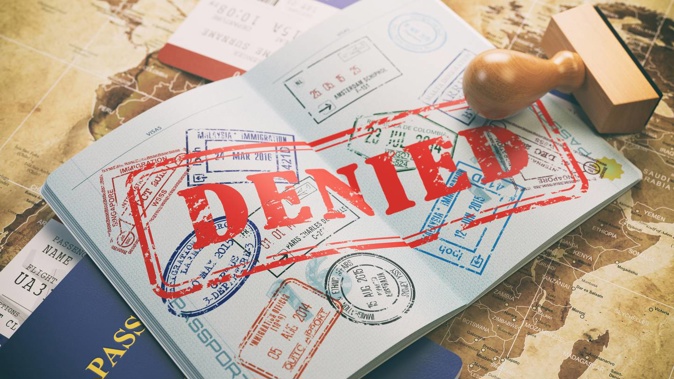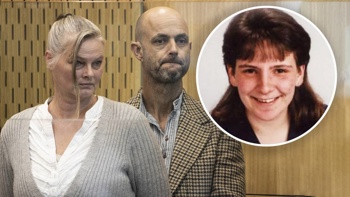
A coroner has ruled that a foreign woman refused refugee status in New Zealand felt she “had no other option” and “made an impulsive decision” to take her own life.
He said she had likely spent some time “ruminating " on her situation before she committed suicide at a North Island hotel.
The woman cannot be identified because Immigration Act legislation protects anyone seeking refugee status.
However, the details of her death can be reported after coroner Alexander Ho released his findings.
He explained that the woman came to New Zealand around six years ago on a visitor visa and applied for refugee status.
That application was investigated and declined.
In 2021 the Immigration and Protection Tribunal upheld the decision.
Then, in early 2022 the High Court declined the woman’s application for leave to appeal and to judicially review the tribunal’s decision.
The woman had told authorities she was involved in humanitarian and aid work in her home country including assisting refugees to enter.
“She encountered difficulties with officials (in her home country) and others who were opposed to her work,” said Ho.
“She published articles critical of a wide range of public officials in (her country) and other countries alleging corruption and cover-ups.”
Coroner Ho said several years before she came to New Zealand the woman and her husband were convicted of fraud in another overseas country.
“(She) believed the conviction was punishment for her assistance of refugees,” said Coroner Ho.
After that, the woman spent time in psychiatric care.
“The first stay was for three days and she was told by a doctor that she had received treatment for an overdose of medication and/or alcohol,” Coroner Ho said.
“The second stay was for six weeks and was a voluntary admission because she could not work out what was happening.”
/cloudfront-ap-southeast-2.images.arcpublishing.com/nzme/VYWGLDSPEF3VOVLCPC3Y6KYD5A.jpg)
The woman was desperate to stay in New Zealand, claiming she would not be safe in her home country. Photo / Supplied
She was also hospitalised after an incident in a hotel which she said she “had no memory of”.
Authorities found a “suicide note” in her hotel room but the woman denied it was in her handwriting.
They found no evidence of “criminal wrongdoing”.
The woman was admitted to another psychiatric clinic.
Medical notes provided to the Tribunal and reference by Coroner Ho stated the woman had attempted suicide a number of times.
“There was also a reference to her having been diagnosed with bipolar and being emotionally unstable but, on examination being ‘not suicidal, coherent, quiet, cooperative, orientated’,’ Coroner Ho said in his findings.
Soon after she arrived in New Zealand she applied for refugee and protected person status - claiming that her humanitarian and aid work, and her “disclosure to journalists of information relating to corruption by senior and other officials” in her home country meant that she “had been and would be targeted for harm by those people”.
She cited previous instances where she believed she had been targeted including the earlier hotel incident.
She claimed another “attack” happened in the centre of a major European city where she “was given pills against her will”.
Legal and financial troubles began to plague the woman.
In New Zealand she tried to set up a business, using a crowdfunding campaign to raise money.
However, the venture was unsuccessful, leaving her in debt to a number of creditors.
Authorities in her home country were also chasing her.
In 2019 they notified her they were commencing criminal proceedings against her in relation to the misappropriation of funds that had been provided to her to establish an educational facility overseas.
/cloudfront-ap-southeast-2.images.arcpublishing.com/nzme/AJES4IHZWOLGXNCYSLR7VZTWMA.jpg)
The woman was interviewed by police in New Zealand in relation to allegations of fraud overseas. Photo / NZME
She was interviewed by the New Zealand police at the request of the police in her home country.
At the end of 2020, she was convicted by a court there of fraud and was sentenced to a stint in prison.
A few months later a former friend filed a complaint in Australia against her, alleging she had not repaid a substantial amount of money.
The complaint was referred to the Federal Investigations Unit in Canberra.
In response to her the woman’s claim for refugee status, the Immigration and Protection Tribunal said she “did not have a well-founded fear of being persecuted” in her home country.
“The Tribunal rejected her claim that she had been targeted for serious physical harm because of an adverse profile with various people and organisations,” said Coroner Ho.
“The Tribunal observed that the prospect of (the woman) facing various legal proceedings if she returned to (her country), such as the enforcement of the (any criminal court rulings against her) merely amounted to the ordinary operation of law.
“(She) sought leave to the High Court to appeal and/or judicially review the Tribunal’s decision… on the grounds that the Tribunal had breached natural justice in certain respects.
“The High Court dismissed both of (her) applications. Among other findings, it held that the Tribunal had a proper evidential basis for finding that before coming to New Zealand (she) had received psychiatric treatment, and had been diagnosed with bipolar illness and had attempted suicide.”
Coroner Ho revealed that when the High Court decision was released the woman’s lawyer phoned her to go through it.
“He said he explained to her the decision, the reasons for the decision and the effect of it, being that there were no more avenues of appeal and that she was now required to leave New Zealand,” said Coroner Ho.
“He says that (the woman) was obviously upset but thanked him for contacting her.”
The lawyer followed up with an email at 4.46pm that day, reiterating to the woman that the decision “means you will have to leave New Zealand”.
She responded five minutes later, saying “thanks, I understand. Best regards.”
Later that evening she booked one-way travel for the next day from her home to a North Island city.
/cloudfront-ap-southeast-2.images.arcpublishing.com/nzme/X7YBXCQBPOLVYEKXSZNLIG2HZA.jpg)
The woman booked a one way trip to a North Island city where she took her own life. Photo / 123RF
Coroner Ho acknowledged the woman’s level of intoxication beefore co but believed she intended to take her life. her life.her life.er life.r life. life.life.ife.e her life. herfore comher life.her life.er life.r life. life.ife.ife.fe.e.
By 12.30pm on her checkout day she was still occupying the room.
A receptionist called to ask what time she would be leaving and the woman said “ok” several times and hung up.
Her body was found about 15 minutes later.
“Police were called. When they entered (her) room they found it empty,” said Coroner Ho.
“There was an empty bottle of vodka next to the bed and an empty bottle of wine in the bathroom rubbish bin.
“Toxicology analysis identified that (the woman) was five times the legal drink driving limit in New Zealand.”
The woman committed suicide after drinking the alcohol - it was not related to her cause of death.
Coroner Ho said police investigated the death and were satisfied “no other person was directly involved in the death”.
“Consequently, I conclude (the woman’s) death was self-inflicted.
“People who take their own lives usually do so as a result of a complex range of factors.
“(The woman) had mental health history. She had previously received psychiatric care in Europe including for attempted suicide… Although she denied that it was a suicide attempt, that was not consistent with the objective evidence.
“(She) had recently received the bad news that she would have to leave New Zealand… she was upset when she heard the news and it was evident that she wanted to stay in the country.
“It likely meant that (she) would have to return to (her home country) which she did not want to do.
/cloudfront-ap-southeast-2.images.arcpublishing.com/nzme/5IG56BYTRBGUVLJVBVCGNCFCIQ.jpg)
Coroner Alexander Ho. Photo / Ministry of Justice
“There were multiple reasons for (her) disinclination to return home including having to face the legal consequences of the court judgments against her in (two countries) and what I accept may have been genuinely held fears for her safety from what she perceived to be persecution by foreign officials.”
Coroner Ho said in the lead-up to her death she had been “alone in a hotel room for two days and likely ruminating on her options”.
She had no travel booked to return to her home, there was no evidence of any other plans and when the hotel receptionist called to inquire about her check out she “had to make a decision about what to do next”.
Coroner Ho acknowledged the woman’s level of intoxication before committing suicide but believed she intended to take her life.
“I doubt that she would have been so grossly intoxicated that she was unable to form an intention to die and unable to take conscious steps to bring about that outcome,” he ruled.
“A drunken intention is still an intention… the likely scenario is that (the woman), seeing no other option whereby she could remain in New Zealand and avoid returning to (her home country) made an impulsive decision while under the influence of alcohol to end her life.
“I am satisfied that there is sufficient evidence to support a ruling of suicide.”
By law, further details of the woman’s death cannot be reported.
Coroner Ho did not prohibit the publication of his findings, however, confidentiality restrictions in place under the Immigration Act prevent details that would identify the woman from being reported.
Where to get help
If it is an emergency and you or someone else is at risk, call 111.
For counselling and support
Lifeline: Call 0800 543 354 or text 4357 (HELP)
Suicide Crisis Helpline: Call 0508 828 865 (0508 TAUTOKO)
Need to talk? Call or text 1737
Depression helpline: Call 0800 111 757 or text 4202
For children and young people
Youthline: Call 0800 376 633 or text 234
What’s Up: Call 0800 942 8787 (11am to 11pm) or webchat (11am to 10.30pm)
For help with specific issues
Alcohol and Drug Helpline: Call 0800 787 797
Anxiety Helpline: Call 0800 269 4389 (0800 ANXIETY)
OutLine: Call 0800 688 5463 (0800 OUTLINE) (6pm-9pm)
Safe to talk (sexual harm): Call 0800 044 334 or text 4334
All services are free and available 24/7 unless otherwise specified.
Take your Radio, Podcasts and Music with you









